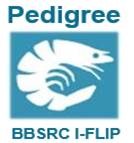University of Stirling (Sustainable Aquaculture Group, Institute of Aquaculture)

The Sustainable Aquaculture Group (within the Institute of Aquaculture) addresses key areas of long term Resilience and Sustainability of the Sector resulting in improved Aquatic Food Security. Our activities are strongly integrated across the group and encompass environmental modelling, all forms of carrying capacity, spatial analysis, biodiversity and new species, international development, securing and improving fishers’ livelihoods, value chains and life cycle assessment. Much of this operates under the guidelines of the Ecosystem Approach to Aquaculture.
Dr Francis Murray (Principal Investigator)
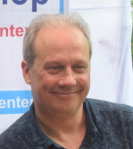
As Principal Investigator for the IMAQulate project, Dr Francis Murray has nearly 25 years experience in aquaculture, encompassing industry, academic research, rural development and consultancy (Stirling Aquaculture). Dr Murray has a broad inter-disciplinary perspective on the aquaculture sector.
He has commercial experience in salmon production and a research background on integrated small-holder aquaculture systems in Asia and Africa, working with CARE International and the World Fish Centre. He was a co-ordinator of a highly inter-disciplinary EU-FP7 large-scale collaborative research-project Sustaining Ethical Aquaculture Trade (2009-2014). This project assessed the sustainability of major export seafood commodity groups farmed in Asia acknowledging values and perspectives of stakeholders along entire value chains. He currently specialises in global value chain analysis and is in a Horizon2020 research consortium (PRIMEFISH) researching competitiveness of European aquaculture and fisheries. He also coordinates various research projects exploring novel approaches to reducing aquacultures dependency on marine feed ingredients
Dr Andrew Desbois (Co-Investigator)
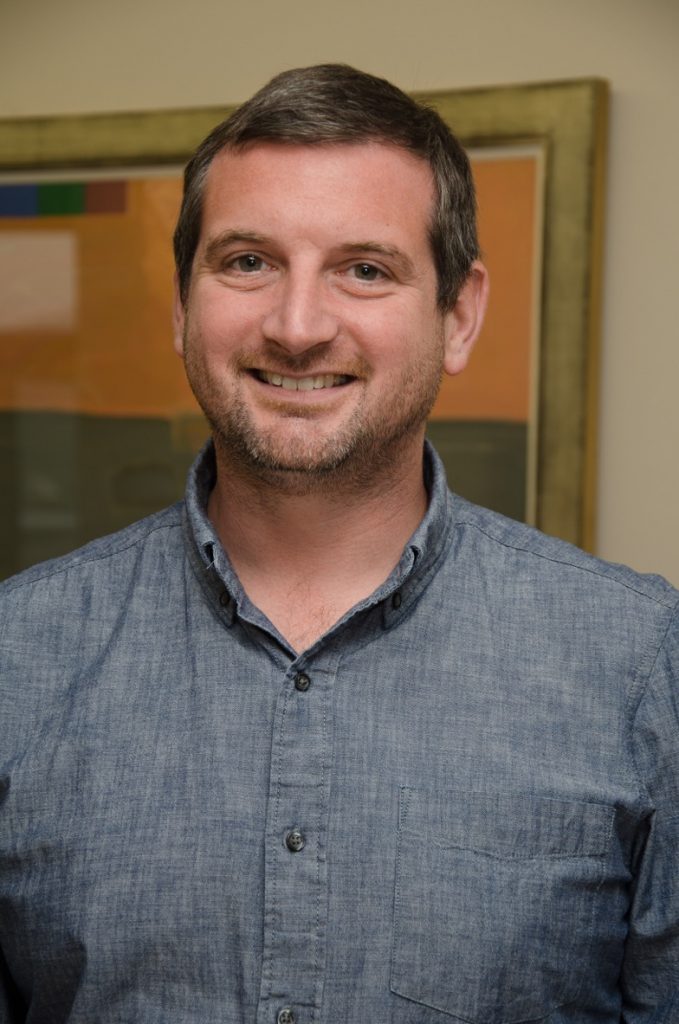
Dr Andrew Desbois is Lecturer in the Institute of Aquaculture at the University of Stirling. As a microbiologist, his research focuses on the microbiological components of aquaculture systems, including bacterial diseases and the development of new solutions; antimicrobial resistance; host-pathogen interactions and virulence; and the microbiome of aquatic organisms and systems. These interests have converge to understand the fundamental processes underlying microbial infections and their potential mitigation in aquaculture settings. Current research projects are funded through commercial sponsors, the Biotechnology and Biological Sciences Research Council, the International Veterinary Vaccinology Network, and the Scottish Funding Council. In addition, Dr Desbois is an editorial board member of Marine Drugs and Marine Biotechnology and has authored >20 peer-reviewed articles.
· Antimicrobial resistance in aquatic bacterial pathogens.
· Alternatives to antibiotics in aquaculture.
· Virulence of
microbial pathogens affecting aquaculture species.
Bangladesh Aquaculture Products Association (BAPCA)
Mohammed Tarique Sarker

President, Bangladesh Aqua Product Companies Association (BAPCA);
Executive Member, Animal Health Companies Association of Bangladesh;
Managing Director, Fishtech Hatchery Limited;
Managing Partner, Growtech Animal Health, Growtech
Golda Hatchery , Growtech Aquaculture, Growtech agro, Carol enterprise
Al Shams Chingri Nursery Ltd., Noakhali. Scientific Officer. April – October, 1996.
Quality Feeds Ltd., Dhaka, Bangladesh. Quality Control In-charge. July 1997 – July 2002.
Super Agro Feeds Ltd., Dhaka, Bangladesh. Director, June 2003 – June 2005.
Fishtech (BD) Ltd., Dhaka. Director (Research & Development). August 2002 to till now.
Books published in Bangla
- Shrimp Diseases Management (In Bangla) Publisher: Bangla Academy, Dhaka, 1999
- Pangas culture management (In Bangla) Publisher: Sheuli Prakashani, Comilla, 2000
- Carp culture management (In Bangla) Publisher: Sheuli Prakashani, Comilla, 2003
- Thai koi culture management (In Bangla) Publisher: Fishtech (Bd) limited, 2007
- Sing-Magur culture management (In Bangla), publisher: Writer, 2007
Bangladesh Agricultural University (Department of Aquaculture)
Bangladesh Agricultural University (BAU) is the first public Agricultural University established in Mymensingh, Bangladesh in 1961. The main task of the University is to tone up the quality and standard of higher agricultural education and to produce first rate agriculturists, agricultural scientists and technologists for shouldering the responsibilities of agricultural development of the country. BAU has six faculties offering seven bachelor’s degrees and several masters degrees. Out of six faculties, the Faculty of Fisheries established with its four departments, of which the Department of Aquaculture is the pioneer one contributing to teaching, research and development in various aspects of aquaculture.
Dr. M. Mahafujul Haque (Co-Investigator) (Professor, Department of Aquaculture)
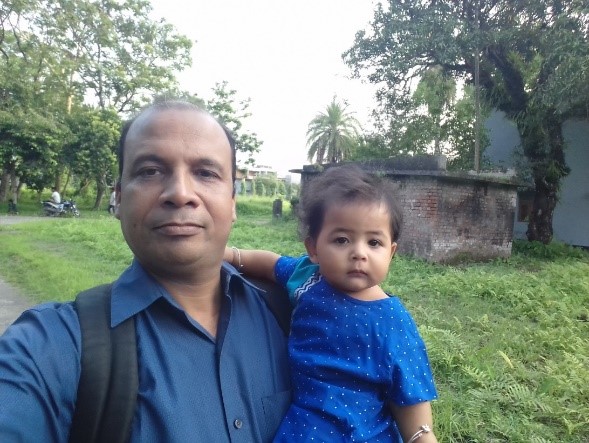
Dr. Mohammad Mahfujul Haque (Ripon) at the Department of Aquaculture, Bangladesh Agricultural University (BAU), Mymensingh has 18 years of teaching and research experience in aquaculture systems and development. In his doctoral study in the University of Stirling (UoS), he analyzed the household level livelihoods impacts of rice field-based fish seed production in Northwest Bangladesh. He contributed to the development process of Pangasius Aquaculture Dialogue Standards implemented by WWF. During 2008-2011, he worked as a monitoring specialist in Decentralized Fish Seed Project under RIUP funded by DFID. During 2007-2013, he taught web-based distance MSc Programme between UoS and BAU. With the funding support from IFS, he analyzed wastewater and sediments of Pangasius ponds and developed some alternative techniques of utilizing the wastes. Later, he worked as a research investigator in EU funded SEAT project (2009-2013, 7thFramework Programme) to increase value and volume of farmed seafood exporting from Asia to EU market. During 2013-2014, he led an action research supported by EU funded project, ANEP to develop Integrated Floating Cage Aquageoponics System (IFCAS), an innovation of fish and vegetable production in underutilized shaded ponds. In 2017, he has completed a collaborative research project of transforming climate knowledge with and for the society funded by the Research Council of Norway. He has published a good number of articles in a variety of peer reviewed journals in recent years. In the recent years Dr. Haque was working as a co-investigator of the international collaborative research projects funded by BBSRC focusing the monitoring of pond ecosystems and real-time water quality parameters, use of novel molecular techniques of pond microbiome analysis, cost-effective use of prophylactic health products (PHPs), development of a PHP risk and efficacy prediction tool based on label-information and other secondary indicators (IMAQulate project). Recently, Dr. Haque has started research and development activities with a new project PEDIGREE which is a ‘research into use’ project built on the findings of IMAQulate (2016-2019, www.stir.ac.uk/imaqulate). Focusing on emergent markets for especially pro and prebiotics in intensifying pangasius catfish and shrimp sectors, PEDIGREE aims to increase awareness of these issues to support improved regulation for safety and quality assurance and more effective small-holder health management in Bangladesh.
Saifullah Rony (Research Assistant)
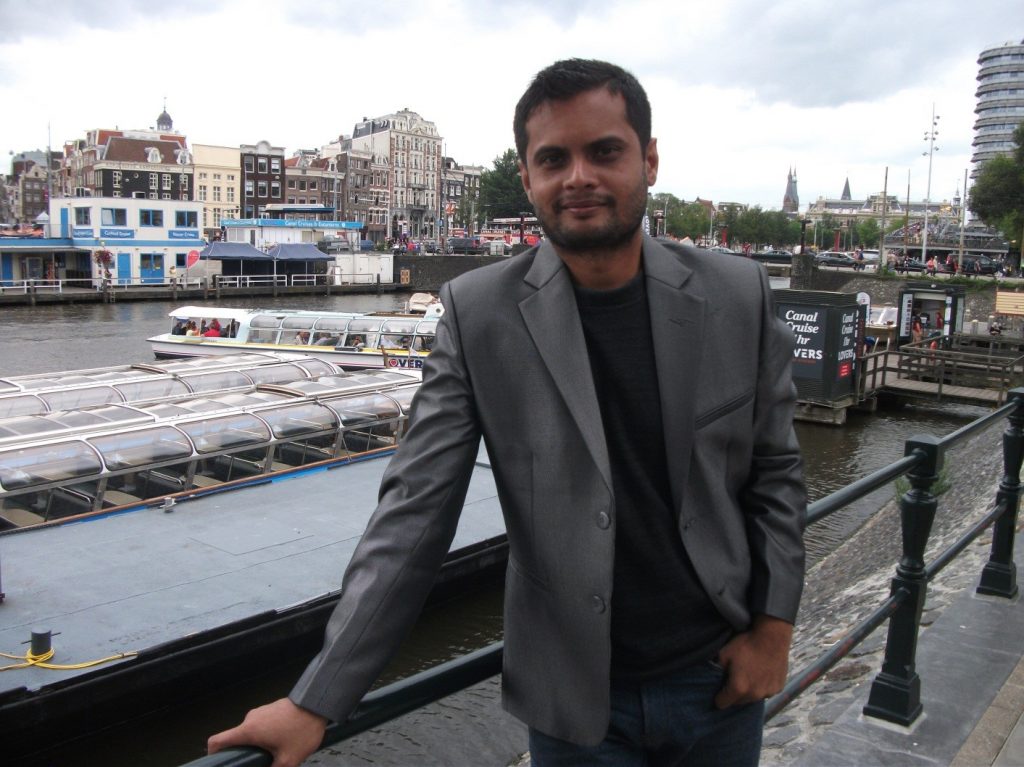
Md. Saifullah Bin Aziz (Rony) has more than 8 years of experience in several research and development projects implemented in Bangladesh. He started his career as a research fellow in Turtle culture project funded by BFRF and later he was engaged in the EU SEAT project to increase value and volume of farmed seafood exporting to EU market from Asia, and is also experienced in data analysis and web design, particularly relative to the SEAT Bangla Website (www.seatbau.net). After finishing of SEAT project he has engaged in TRACKS project funded by the Research Council of Norway, where he was engaged in implementing Citizen Science research in the Northeast Bangladesh. Carrying out his research and working on TRACKS projects, Rony gained experience in climate change impacts on natural water body (haor area). Then he engaged in IMAQulate project led by the University of Stirling, UK. Currently he works in PEDIGREE project for regulation of prophylactic aquaculture health products and improved smallholder fish health management in Bangladesh. Rony’s interest in the PEDIGREE project is to work with prophylactic aquaculture health products and improved smallholder health management in Bangladesh.

Mr Ahmad Jaman (Research Assistant)

Mr. Ahmed Jaman has been working in WorldFish Bangladesh for more than five years. He has been involved in research on fish health management, hatchery operation, farm economics, rice-fish production system, aquaculture value chain, monitoring and evaluation tools such as Sense maker, most significant change, participatory rural appraisal. He gained post-graduation in Fisheries Biology and Genetics from University of Rajshahi, Bangladesh.
Dr Muhammad Meezanur Rahman (Co-Investigator)

Dr Meezanur Rahman is a scientist at WorldFish Bangladesh. He has 23 years experience in research, business and development projects. His professional accomplishments include leading, coordinating and participating in research and development projects, technical support, marketing and sales in south Asian countries (Bangladesh, Indonesia, Myanmar and the Philippines) and in an international aquaculture business company and implementation of aquaculture development projects in Bangladesh. His research interest covers shrimp/prawn and fish health management, improvements across the aquaculture value chain and production without medicalisation. He has been leading several research projects in WorldFish Bangladesh in collaboration with national and international universities, research centres and the private sector. He is a reviewer of international journals. Dr. Rahman conducted his Ph.D. research on the virulence of White Spot Syndrome Virus (WSSV) isolates and the effect of temperature on WSSV infected shrimp at Ghent University, Belgium
Practical Action Bangladesh
Dr Faruk ul Islam
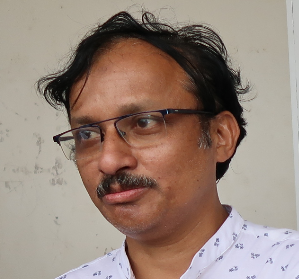
Mr Syed Mahmud Hasan
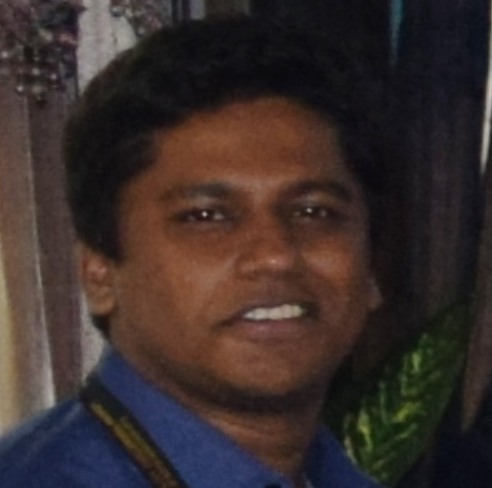
PEDIGREE Project Associates
Dr Abdullah-Al Mamun (Noakhali University of Science & Technology)

Mr Hazrat Ali (WorldFish Center Bangladesh)
Mr. Hazrat Ali has more than 8 years of experience in several research and development projects implemented in Bangladesh and Nepal. His skills included improve farm productivity of small scale farmers, value chain analysis, grassroots institution development, effective market linkage to make the system sustainable through Participatory Market Chain Approach (PMCA), sustainability, standard and certification in Bangladesh aquaculture, qualitative and quantitative data management, application of monitoring and evaluation tools such as SenseMaker, Most Significant Change (MSC). He has published five research articles in international peer reviewed journals.
Prof Dave Little (Co-Investigator)
Prof Dave Little is a systems scientist with over 30 years experience in leading research and capacity building initiatives in Asia. He has a broad-based interdisciplinary background that has spanned commercial and developmentally focused research, supervised more than 100 postgraduate research students, including more than 20 PhDs. Since his time working at the Asian Institute of Technology, Bangkok, he has continued to develop a network of collaborators throughout the region through research projects and distance learning initiatives. He has served as a Director of the World Aquaculture Society, is an advisor to various certification and standard setting organisations (Global Aquaculture Alliance, Soil Association, Monterey Bay Aquaria) and edits the Sustainability and Society section of the journal Aquaculture.
Mahmoud El Tholth (PDRA)
Dr Mahmoud Eltholth is an epidemiologist and health economist with over 10 years’ experience in animal and aquatic research. Mahmoud’s main area of interest is Epidemiology, Public Health, Aquaculture, Value Chain Analysis and Health Economics. He has been a co-investigator in many national and international multidisciplinary projects in collaboration with the Royal Veterinary College, University of London, World Fish Centre and the International Livestock Research and the Institute of Aquaculture, University of Stirling. Along his career, Mahmoud has gained experience in qualitative and quantitative research methods. Mahmoud contributes to the preparation and delivery of Epidemiology and Veterinary Public Health lectures for undergraduate and postgraduate courses. He has also been supervising several research projects and MSc Veterinary Epidemiology dissertations.
Mahmoud’s current position is Postdoctoral Researcher at Institute of Aquaculture, University of Stirling on BBSRC and Newton funded projects “Evaluating Costs and Benefits of Prophylactic Health Products and Novel Alternatives on Smallholder Aquaculture Farmers in Asia and Africa (IMAQulate)” in India, Kenya and Bangladesh and “Behavioural Prophylaxis in Tilapia” in Egypt.
William Leschen
Will Leschen has 20 years experience in commercial, interdisciplinary aquaculture research and government sector engagement, both within the UK and developing countries. Recently this has included managerial and coordinating roles in EU and Scottish government funded projects in Asia (Sustaining Ethical Aquaculture Trade) and Africa (Aquaculture Enterprise Malawi). He also has experience in setting up successful African aquaculture networks (SARNISSA) with over 2000 members following and sharing information and contacts across borders and languages. Will has an extensive background in aquatic animal health.
